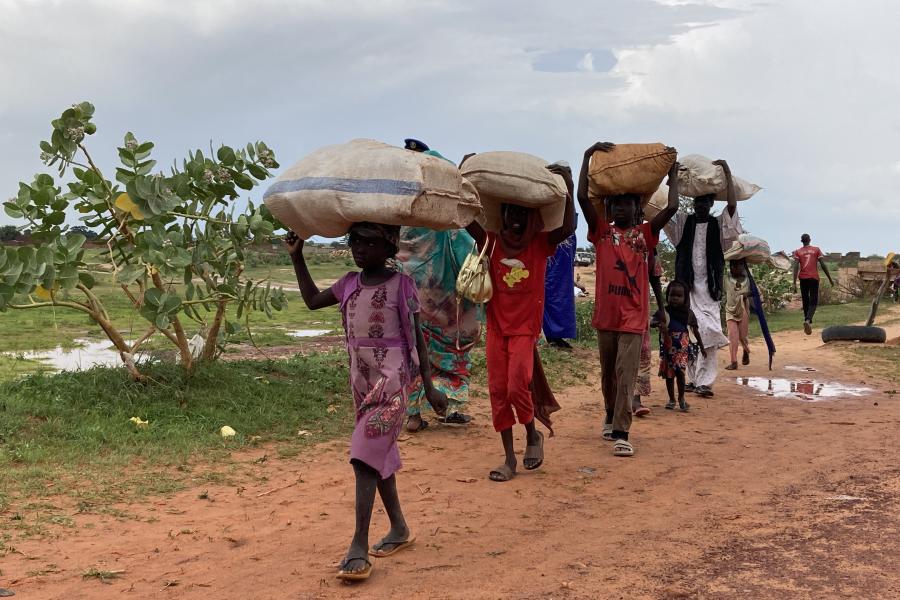2024 population planning figures
13.6 million forcibly displaced and stateless people¹ | 10% of global total

Regional overview
Political instability and armed conflict in West and Central Africa are expected to drive the number of forcibly displaced and stateless people up by 9% to 13.6 million in 2024, 8.4 million of them internally displaced. New conflicts, increased competition over resources due to the effects of climate change, poverty and inflation are increasing humanitarian needs.
The region has endured protracted displacement and long-standing conflicts in Chad and around the Lake Chad Basin, and the new crisis in Sudan has driven more refugees into Chad and the Central African Republic (CAR), where humanitarian needs have outstripped the response. Political instability and worsening insecurity in Burkina Faso, Mali and Niger has led to new arrivals in the coastal countries of Benin, Côte d’Ivoire, Ghana, and Togo, and more are expected in 2024.
UNHCR’s budget, reflecting expected needs of $1.011 billion in 2024, 4% higher than the latest 2023 budget, will fund emergency preparedness and response, protection, solutions, and partnerships. Enhancing emergency preparedness and response includes updating and establishing contingency plans and early warning systems. UNHCR will establish a consolidated multi-country office in Abidjan, covering Benin, Côte d’Ivoire, Ghana, Liberia, and Togo, ensuring efficiency and greater proximity to areas of intervention in the Sahel response, and focusing on reinforcing Governments’ and communities' capacities to support and include forcibly displaced and stateless people.
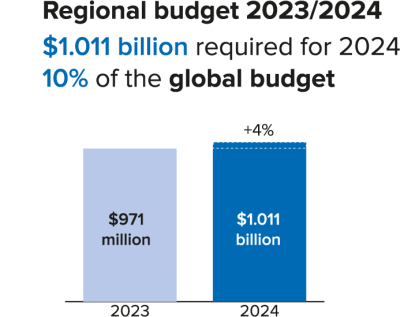
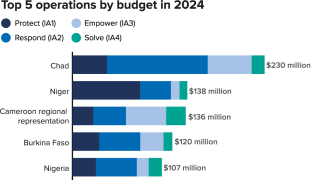
On protection, UNHCR will assist Governments in the face of a progressively challenging landscape marked by a fragile protection space, advocating for access to territory, supporting legal reforms for asylum, and encouraging ratification of international agreements. UNHCR will assist the Governments of Ghana and Niger with reforms of their asylum frameworks to ensure refugee status determination procedures are efficient and of a high standard. UNHCR will provide technical support to Burkina Faso, Cameroon, and Nigeria to domesticate the Kampala Convention on internal displacement. Enhancing the collection, analysis and efficient use of protection data is a priority. The Inter-Agency protection monitoring system Project 21 will be expanded in the Sahel countries and extended to CAR and coastal countries to inform evidence-based protection response and targeted advocacy.
UNHCR will focus on gender-based violence prevention, mitigation and response programming from the onset of any emergency, and dedicate specific attention to promoting partnership with local women-led organizations and advocacy for the inclusion of forcibly displaced and stateless gender-based violence survivors into national social services. In Niger, for example, UNHCR aims for 70% of refugees, asylum-seekers and IDPs to have access to available gender-based violence services.
In the search for durable solutions, UNHCR will help put the “Secretary-General’s action agenda on internal displacement” into action, with the CAR, Chad, Niger and Nigeria among 16 pilot countries receiving targeted support for resolving internal displacement in a combined humanitarian, development and peacebuilding effort. UNHCR will seek voluntary returns and area-based initiatives, in line with the objectives of the “High-Level conference on the Lake Chad Region” and the Lake Chad Basin Governors’ Forum in 2023.
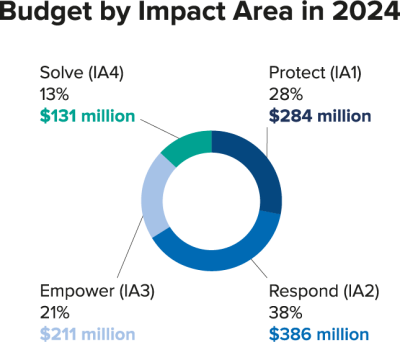
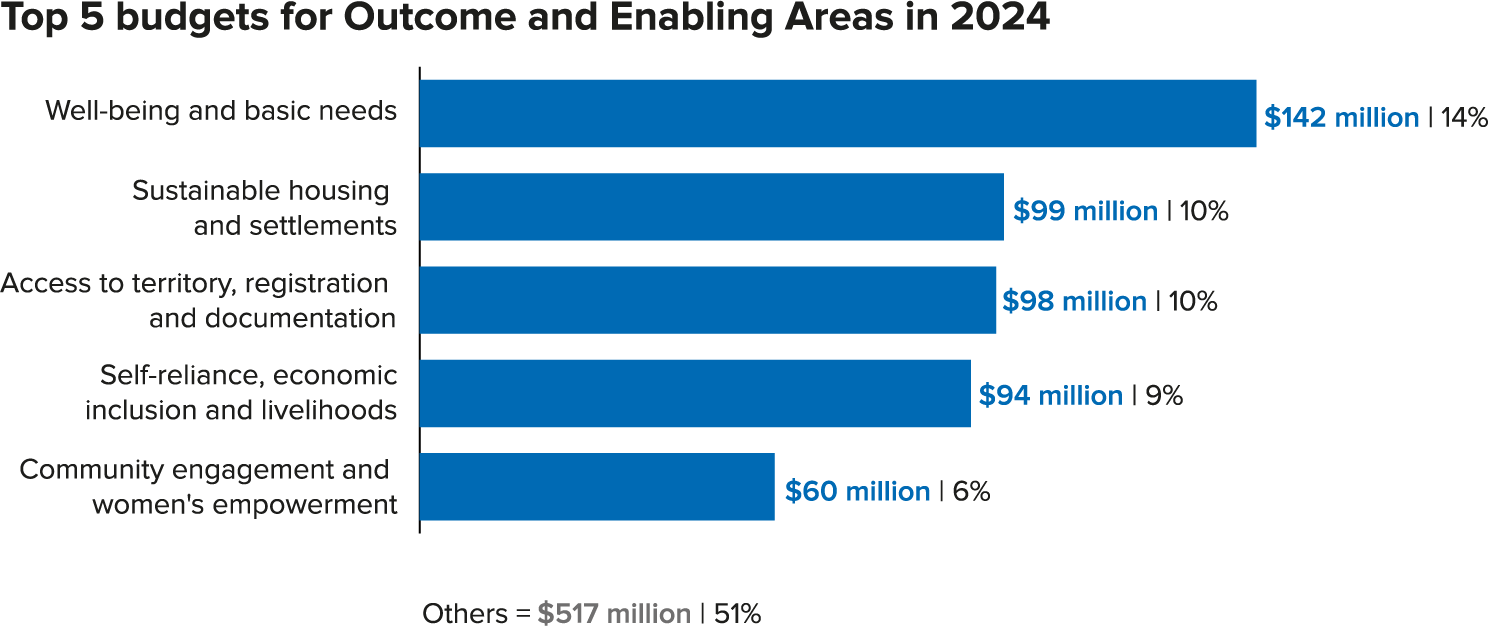
UNHCR will work to consolidate the solutions platform for the CAR situation that was launched in October 2023, answering the call of the 2022 Yaoundé Declaration, and will offer technical assistance for national action plans and a comprehensive response involving returns and socioeconomic integration.
Over 59,000 refugees are expected to return to Chad, Cameroon, Niger and Nigeria in 2024. UNHCR will ensure refugees wishing to return are equipped to make well-informed decisions and that returns occur in conditions of safety and dignity. UNHCR will aim to strengthen partnerships with the World Bank and the African Development Bank and, in line with Global Compact on Refugees, will seek development actors’ support for people’s integration and reintegration in hosting and return areas, and their inclusion in national plans and services.
UNHCR will continue to support naturalization processes for refugees who have spent decades in asylum, such as Mauritanians in Senegal and Mali. Approximately 112,000 vulnerable refugees in the region are expected to need resettlement, and UNHCR will aim to expand complementary pathways such as student visas, labour mobility schemes or family reunifications.
For the latest operational and funding updates on the West and Central Africa region check this page.
